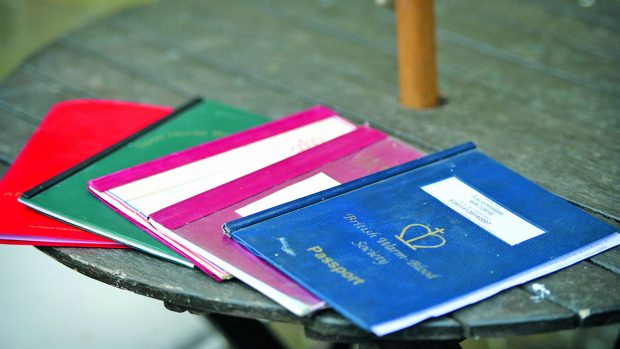Two businessmen have been sentenced to years in prison for passing off horsemeat as beef.
Microchips of three horses were found in meat which was being passed off as beef for human consumption.
Andronicos Sideras, owner of Dinos and Sons Ltd, conspired with Ulrich Nielsen and Alex Ostler-Beech, of Flexi Foods, to sell horsemeat as beef over a 10-month period in 2012.
On a number of occasions Sideras, 55, of Southgate, London, mixed consignments of beef with horsemeat, repackaged the meat and attached false labels, which claimed it originated from a Polish beef supplier.
This enabled him to inflate his profits, as horsemeat was cheaper to buy than beef.
He had denied one count of conspiracy to defraud but was convicted on 26 July after a three-week trial at Inner London Crown Court.
Nielsen, 58, of Gentofte in Denmark, and Ostler-Beech, 44, of Sutton on Hull, had previously pleaded guilty to the same offence and the trio were sentenced at the court on Monday (31 July).
Sideras was jailed for four years and six months and Nielsen for three years and six months, while Ostler-Beech was given an 18-month suspended sentence and a 120 hour-community service order.
“These men, motivated by greed, knowingly sold horsemeat to manufacturers so they could increase their profits,” said Nina Montalbano from the Crown Prosecution Service (CPS) after Sideras’ conviction.
“Faced with the evidence put forward by the CPS, Nielsen and Ostler-Beech pleaded guilty, whereas Sideras was convicted by a jury.
“All three defendants knew full well this meat would enter the food chain through a number of leading supermarkets but continued their fraud with blatant disregard for the public’s right to know what is in their food.”
In 2013, the Food Standards Agency asked the City of London Police to start an investigation, which centred around Flexi Foods.
The company, owned by Denmark-based Nielsen, has UK offices in Hull and Oster-Beech was the UK representative.
It passed meat through Sideras’ Tottenham-based food supply and sausage manufacturing company Dinos and Sons.
During searches of the Flexi Foods Hull and Denmark offices, emails and other documents were uncovered detailing the conspiracy to deliberately introduce horsemeat into the food chain to increase company profits. Other evidence was seized at Dinos and Sons’ premises in London.
Oster-Beech was arrested at the Hull offices in July 2013 and Nielsen was detained in Denmark before being interviewed by police in the UK.
In the same month, Sideras was also arrested.
His fingerprints were later found on pallet labels attached to a consignment of mixed horsemeat and beef detained in Northern Ireland.
These labels were deliberately changed so anyone checking it would think it was 100% beef. However tests showed it was around 30% horsemeat.
Other loads had replicated this mixing pattern between July and November 2012.
Article continues below…
You might also be interested in:

Three charged following horsemeat investigation
The charges follow an international fraud investigation involving

Keep calm and carry on! 7 moments The Game Fair made us proud to be British
Here’s why ‘Glastonbury for the green welly brigade’

‘I couldn’t believe she was still alive’: rescuer reunited with mare she saved
It was more than 20 years ago that
An environmental health officer visited a meat manufacturer in Newry, Northern Island, in 2012 and on examining 12 pallets of meat found two contained horsemeat.
Microchips from two Polish horses and one Irish horse were also found in the meat, which was found to have been sold by Flexi Foods and its labels altered at Dinos.
There were seven orders where this had taken place, involving a total of 83,000kgs of meat, of which more than a third (30,000kg) was horsemeat.
Mixing in cheaper horsemeat to the beef allowed Flexi Foods to increase the profit on each consignment by approximately 40%.
The “trimming” meat was used in products such as minced meat, sausages, pies and ready meals.
Following the sentencing, DC Stephen Briars, who led the case for the City of London Police Fraud Squad, said this is a “clear case of fraud”.
“The fact the case revolves around meat and the food chain makes no difference to this crime,” he said.
“A lie is a lie whatever the circumstances.
“These three men set out to deceive suppliers, retailers and ultimately the consumer so they could make more money.
“This case has involved a real team effort with staff from the City of London Police, working closely with our partners from local authorities, the Food Standards Agency, and the food industry to gather the evidence necessary to prove this unique and challenging case.”
For all the latest news analysis, competition reports, interviews, features and much more, don’t miss Horse & Hound magazine, on sale every Thursday




